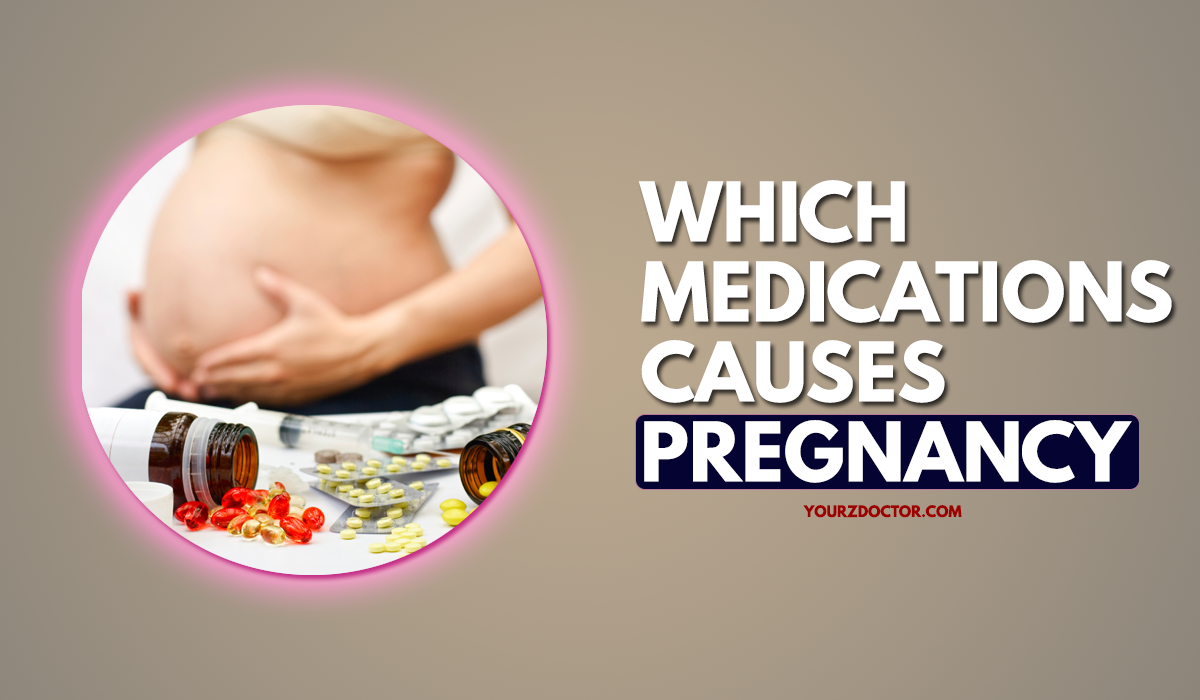Pregnancy is an exciting and life-changing event for many women. However, it is important to be aware of the various factors that can increase the chances of pregnancy, including the use of certain medications. In this blog post, we will explore which medications can cause pregnancy and how you can take steps to avoid unintended pregnancy.
Which medications causes pregnancy
Understanding
Medications and Pregnancy
Before we
dive into the specifics of which medications can cause pregnancy, it's
important to understand how medications can affect fertility and pregnancy.
Certain medications can interfere with ovulation, reduce the effectiveness of
hormonal birth control methods, or cause other hormonal imbalances that
increase the chances of pregnancy.
While many
medications are safe to use during pregnancy, some can pose a risk to the
developing fetus. This is why it's important to discuss any medications you are
taking with your healthcare provider, especially if you are trying to conceive
or are already pregnant.
Medications That Can Cause Pregnancy
1.
Antibiotics
While most
antibiotics are safe to use during pregnancy, some can reduce the effectiveness
of hormonal birth control methods. This is because certain antibiotics can
interfere with the metabolism of estrogen, which can cause a decrease in its
effectiveness.
2.
Antidepressants
Antidepressants
are commonly prescribed to treat depression and anxiety. However, some
antidepressants can interfere with ovulation and reduce the effectiveness of
hormonal birth control methods. This is why it's important to discuss any
antidepressants you are taking with your healthcare provider if you are trying
to conceive or are already pregnant.
3.
Antiepileptics
Antiepileptic
medications are used to treat epilepsy and other seizure disorders. However,
some antiepileptics can interfere with ovulation and reduce the effectiveness
of hormonal birth control methods. In addition, some antiepileptics have been
associated with an increased risk of birth defects, so it's important to
discuss any antiepileptic medications you are taking with your healthcare
provider.
4.
Hormonal contraceptives
While
hormonal contraceptives are an effective form of birth control, they are not
100% foolproof. Certain factors, such as missing a pill or taking a medication
that interferes with its effectiveness, can increase the chances of unintended
pregnancy.
5.
Non-steroidal
anti-inflammatory drugs (NSAIDs)
NSAIDs, such
as ibuprofen and aspirin, are commonly used to treat pain and inflammation.
However, some studies have suggested that NSAIDs can interfere with ovulation
and reduce the effectiveness of hormonal birth control methods.
Preventing Unintended Pregnancy
If you are
taking any medications that can cause pregnancy, it's important to discuss your
options with your healthcare provider. Depending on your situation, you may
need to switch to a different medication or use additional birth control
methods to reduce the risk of unintended pregnancy.
In addition,
it's important to practice safe sex and use condoms or other barrier methods to
reduce the risk of sexually transmitted infections (STIs). By taking these
steps, you can protect your reproductive health and prevent unintended
pregnancy.
Read More
Related Tags,
what causes
pregnancy cravings, what causes pregnancy brain, having sex during periods
causes pregnancy, vaccine causes pregnancy, what causes pregnancy nose, what
causes pregnancy headaches, what causes pregnancy nausea, flu shot causes
pregnancy, what causes pregnancy insomnia, what causes pregnancy glow, what
causes pregnancy carpal tunnel






0 Comments